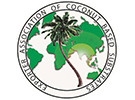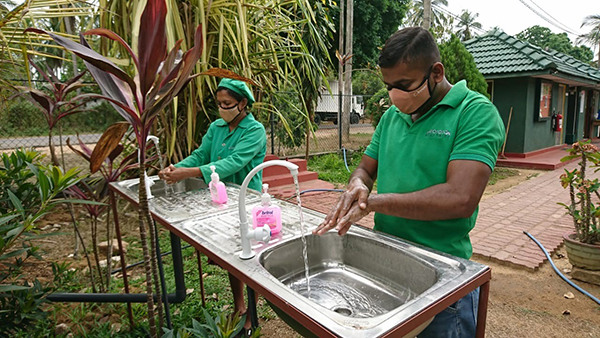 Due to the growing popularity of coco substrates in the horticultural industry and the quality of the Sri Lankan coco products, the industry has seen rapid growth. That means that the effects of the lockdown were also very big, both for the horticultural supply chain as for the 20,000 people working in the direct coco husk supply chain as well as another 100,000 indirect jobs. Now they explain how, thanks to collaboration with the authorities, they were able to get back on track rapidly.
Due to the growing popularity of coco substrates in the horticultural industry and the quality of the Sri Lankan coco products, the industry has seen rapid growth. That means that the effects of the lockdown were also very big, both for the horticultural supply chain as for the 20,000 people working in the direct coco husk supply chain as well as another 100,000 indirect jobs. Now they explain how, thanks to collaboration with the authorities, they were able to get back on track rapidly.
With the breakout of the Covid-19 pandemic, the Sri Lankan government enforced a lockdown from the middle of March, causing numerous hardships to the industrialists. However, due to the timely intervention of ECAS (Exporter Association of Coconut husk-based substrates), the industry was able to get back on its feet again within less than two weeks although the production capacities remained low due to the social distancing and other guidelines that became a norm to contain infections within workplaces.
“We are extremely glad that Sri Lanka is among one of the most successful countries in containing the spread of the disease due to the timely and decisive actions of the authorities prioritizing the health and safety of the citizens”, a spokesman of ECAS shares. The association represents the Sri Lankan entrepreneurs who are engaged in manufacture and export of coir substrates.
Established in 2008, the ECAS nowadays is responsible for almost 95% of the coconut husk based total exports of the country. With these amounts, they are also responsible for over 20,000 direct and 100,000 indirect employment opportunities in the supply chain, positioning the industry among the top ten of foreign exchange earners for Sri Lanka. “We were able to accomplish this due to the persistent efforts to add value to this renewable natural resource Sri Lanka is blessed with, having the rapidly changing professional horticultural market at the center of our focus”, they explain – but this also means the pressure on the industry was high since there are many people affected by the lockdown.
“We’re grateful to the Sri Lankan authorities who understood the importance of the continuity of the substrates industry to the world food security when the world is in the midst of its worst crisis ever for over a century. The leadership given by Coconut Development Authority of Sri Lanka (regulatory body for the coconut industry) in getting the necessary permits from the health authorities and the security establishment during the time of curfew in the Island is highly commendable”, they add. “Without that timely intervention of the Coconut Development Authority (CDA) and the Export Development Board of Sri Lanka (EDB) the industry would have not only suffered a painful period of closure but a resulting non delivery of its contractual obligations to the overseas clients.”
EACS was able to work swiftly with the CDA and EDB to classify the coconut industry as an essential service considering its importance to the world food supply and the export economy of Sri Lanka. “Being able to bring back production within a very short period under tight preventive measures in the middle of the crisis was a textbook case of how the government and the private sector could corporate in overcoming industry disruptions of any proportions. The industry quickly adopted to the new method of working ensuring the safety of employees in order to honor their contractual obligations to the clients as they were aware of the fact that growers were depending on their supplies.”
Then there’s the clients that are depending on the coco products. Also from that side of the value chain, the ECAS saw companionship. “We’re grateful to clients around the globe who endured numerous hardships yet demonstrated patience and understanding of the certain inevitable delays caused by the crisis.”

Now they are convinced they navigated the worst of the pandemic. “The naturally inherited properties of coconut products from this blessed Island of Sri Lanka, be it coconut water, virgin coconut oil and coconut milk for consumption purposes, or coir as a substrate combined with the commitment and passion of the Sri Lankan producers undoubtedly makes Sri Lanka “the preferred supplier for many requirements of coir products in the future. Thanks to the determination and speed, the industry was able to transform to an agile ecosystem and has once again proved that we are very reliable suppliers of high-quality coco based growing media to the world.”
About the EACS
The objective of the association is to promote brotherhood among industry members, share market and technical knowledge, and make representations to the state on behalf of the industry in order to maintain an conducive environment for growth and prosperity of this export business which is vital to the country. EACS is also actively engaged in benchmarking and promoting the highest standards in Sri Lankan coir products whilst fervently pursuing environmental, social, and economic sustainability throughout the value chain benefiting hundreds of thousands of people who depend on the Island nation’s coconut industry for their livelihood.
